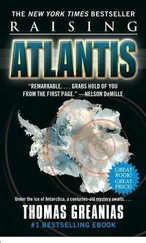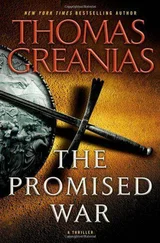Thomas Greanias - The 34th Degree
Здесь есть возможность читать онлайн «Thomas Greanias - The 34th Degree» весь текст электронной книги совершенно бесплатно (целиком полную версию без сокращений). В некоторых случаях можно слушать аудио, скачать через торрент в формате fb2 и присутствует краткое содержание. Жанр: Триллер, на английском языке. Описание произведения, (предисловие) а так же отзывы посетителей доступны на портале библиотеки ЛибКат.
- Название:The 34th Degree
- Автор:
- Жанр:
- Год:неизвестен
- ISBN:нет данных
- Рейтинг книги:3 / 5. Голосов: 1
-
Избранное:Добавить в избранное
- Отзывы:
-
Ваша оценка:
- 60
- 1
- 2
- 3
- 4
- 5
The 34th Degree: краткое содержание, описание и аннотация
Предлагаем к чтению аннотацию, описание, краткое содержание или предисловие (зависит от того, что написал сам автор книги «The 34th Degree»). Если вы не нашли необходимую информацию о книге — напишите в комментариях, мы постараемся отыскать её.
The 34th Degree — читать онлайн бесплатно полную книгу (весь текст) целиком
Ниже представлен текст книги, разбитый по страницам. Система сохранения места последней прочитанной страницы, позволяет с удобством читать онлайн бесплатно книгу «The 34th Degree», без необходимости каждый раз заново искать на чём Вы остановились. Поставьте закладку, и сможете в любой момент перейти на страницу, на которой закончили чтение.
Интервал:
Закладка:
Andros took off his hat as if to seek his pardon, but he secretly pulled the pin from above the rim. Without thinking, he rammed it into the German’s neck like Erin Whyte had taught him, killing him instantly. The other soldier, shocked to see his companion fall to the pavement without a sound, reached for his gun, but Andros drew his father’s dagger and shoved it into the soldier’s stomach. The coin that the dying soldier clutched rolled onto the pavement, and the little boy grabbed it and ran.
Andros heard a whistle and saw another German soldier some way down the park avenue wave his hand. A whole group of Germans came into view and moved toward him. Andros started running. He ran past the fountain toward the street. A glance over his shoulder showed the Germans closing in on him.
He reached the street only to find his way blocked by a black Mercedes. Several members of the Security Police got out, pointing machine guns.
The commanding officer, a colonel, smiled at Andros with fiendish glee. “My, aren’t we in a hurry tonight?” He nodded to one of his underlings, who proceeded to shove Andros into the backseat with the barrel of his gun.
Andros looked over his shoulder again and saw the pack of angry soldiers slow down as they approached the curb. The SP colonel flashed his papers to the sentry with the whistle and asked for a count of the wounded.
“Two of our own dead, Standartenfuhrer,” the sentry reported, trying to look into the Mercedes and glimpse the killer’s face. But the SP man with the machine gun pushed Andros farther back, out of view. “That man there.”
The SP colonel nodded. “We have him now.”
“ Zu Befehl, Standartenfuhrer. We know the drill.”
“Then get it over with,” snarled the SP colonel. He got into the front of the Mercedes, next to the driver.
Andros looked out through the rear window as they started to pull away. The soldiers who had chased him were grabbing innocent passersby, women and children, and lining them up against a wall. He looked in front. “What are they doing?”
“Retribution,” the SP colonel explained. “Your heroics have just cost your countrymen their lives.”
“But women and children?”
“You killed two Germans. I wouldn’t be surprised if they executed the first hundred Greeks who happen to walk by.”
Andros heard the gunfire and screams as he looked back. “You bastards.”
“Yes,” said the SP colonel. “We bastards just saved your life.” They passed Hadrian’s Arch, and the driver cut the lights before swinging a hard right down a side street toward the Plaka district.
“Where are we going?” asked Andros.
“Stissihorou Street,” said the SP colonel. “Gestapo headquarters.”
“But Stissihorou is the other way.”
The SP colonel nodded and addressed the man with the machine gun in back. “Burger…”
Andros saw the butt of the gun and felt a tremendous crack against his skull. Then all went black.
64
T hat night in the Parnon Mountains, situated some two hundred miles south of Athens, fifteen Greek andartes and their British liaison officer left their secret base on horseback and headed toward the designated dropping zone. The andartes, drawn from the ranks of the rivaling right-wing EDES and left-wing ELAS, wore rags for uniforms and sheepskin caps with the initials EOE, which stood for National Bands of Greece. Their liaison officer to the Middle East GHQ, Colonel James Doughty, rode at the head of the line.
The crack signal that was broadcast by the BBC on the radio back at the National Bands base told them to expect three Royal Air Force planes to pass over at 0100 hours.
It was ten minutes past the hour already, and Stavros Moudjouras of ELAS could still hear the thunder of German Junkers 88s in the distance, bombing the fires they had lit on dummy dropping grounds earlier.
“Go ahead, blast away, you Boche!” Doughty shouted at the night sky. “There’s nothing there!”
The tough New Zealander always amused Stavros, but Stavros never forgot that Doughty served the interests of the British, not those of the Greek people. The same was true, Stavros was beginning to suspect, of the National Bands of Greece, which he had joined in the first place because he would rather fight Germans than Greeks.
The NZ initials on Doughty’s cap, in particular, reminded Stavros of his enemy General Napoleon Zervas, the head of EDES. In his younger days as a senior army officer, Zervas had made his money playing cards and gambling. Whenever he found himself short of money, he would threaten a revolution in the army to shake the financial markets. After the exchanges took a dive, he would call off the revolution and split the proceeds of the rising market with the financier who worked with him. Such antics incensed Stavros, mostly because he never grasped the concepts of capitalism and distrusted a system that made blackmailers like Zervas rich-and honest, hardworking Greeks like his father poor.
The presence of EDES colonel Alexander Kalos, riding next to Doughty in his British-supplied battle dress uniform, boots, and pearl-handled pistols, did little to ease Stavros’s fears. Kalos was a Zervas bootlicker with ambitions of his own, a Cretan and former cavalry officer who controlled the Peloponnese for EDES. He had secured his reputation with the Greek Resistance through his part in the destruction of the Gorgopatomos Railway six months earlier. The railway had been providing 80 percent of Rommel’s supplies to North Africa, and its destruction was undoubtedly the highest achievement of the Resistance thus far. Kalos was only a captain in the Greek army back then, like me, thought Stavros, but Zervas had taken the unauthorized liberty of promoting him to full colonel before promoting himself to general. Now, in the eyes of the British in Cairo, Kalos was the highest-ranking Greek army officer in the integrated National Bands of Greece.
What supplies Cairo was dropping tonight was anybody’s guess. But Stavros’s younger brother, Michaelis, offered that whatever they might be, he had bad feelings about the rendezvous. This prophecy did not surprise any of the older andartes, least of all Stavros, who looked at his youngest brother and saw a slight, nervous, and sickly figure riding beside him.
“You have bad feelings about everything,” Stavros said. “‘I think we’ll drown in that canal,’ or ‘We’ll fall off this cliff if we try to climb it,’ or ‘The rocks will fall on us.’” Stavros adjusted the Sten submachine gun slung over his shoulder and grunted. “We have girls who are stronger partisans!”
“I’m here, aren’t I?” Michaelis insisted.
As far as Stavros was concerned, that was the problem. His brother had abandoned the discipline of school life to join the free and wild atmosphere of the andartes in the mountains six months ago. Michaelis had become violently ill the day after the British had made a supply drop to partisans outside their family’s village in northern Greece. It turned out he had eaten the new gelatin explosive known as plastique, thinking it was toffee. Stavros blamed the British and insisted they provide medical attention and keep him out of harm’s way. With things heating up between EDES and ELAS, the family sent both of them to the National Bands in the Peloponnese.
Now Stavros never saw Michaelis do anything but work the soft putty of plastic explosives from recent supply drops into manageable ten-pound blocks. This was his eternal chore, not studying for school or playing with other boys or building the “better life” the Communist Party had promised, but making bombs. Over time the stuff had managed to work its way under Michaelis’s nails and into his skin, and Stavros blamed that for his brother’s headaches. Or maybe he blamed himself and the Party. Looking at his little brother, he wondered what he was fighting for. Deep doubt and a gnawing sense of guilt rose within him. He tried to suppress his misgivings with dialectic Marxism, but the superstitions and fears of his home village still had a powerful hold on his psyche.
Читать дальшеИнтервал:
Закладка:
Похожие книги на «The 34th Degree»
Представляем Вашему вниманию похожие книги на «The 34th Degree» списком для выбора. Мы отобрали схожую по названию и смыслу литературу в надежде предоставить читателям больше вариантов отыскать новые, интересные, ещё непрочитанные произведения.
Обсуждение, отзывы о книге «The 34th Degree» и просто собственные мнения читателей. Оставьте ваши комментарии, напишите, что Вы думаете о произведении, его смысле или главных героях. Укажите что конкретно понравилось, а что нет, и почему Вы так считаете.












